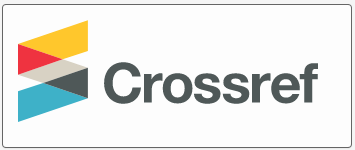New Language Acquisition for Refugees: A Key to Effective Transitioning
DOI:
https://doi.org/10.52340/idw.2023.96საკვანძო სიტყვები:
Refugees, Language Acquisition, Integration, Resettlementანოტაცია
Acquiring a second language has economic, educational, and social impact on individuals and families. When considering the rapid expansion of individuals identifying as refugees in today’s world, learning a new language takes on a new role; it is a critical component of refugees’ lives. For refugees, acquisition of the new language in their new country goes far beyond the aforementioned benefits; it is a crucial part of positive transitioning to their resettlement in a new country. While there are many components for refugees’ successful integration into a new society, learning and using a second language is interwoven into many of these components as a means of attaining effective resettlement. Using Ager and Strang’s (2008) domains for refugee integration, this article highlights the role language acquisition plays in some key domains, especially in acquiring employment, in educational opportunities, in healthcare, in development of social connections, and, if desired, in citizenship. In addition to examining these areas, this paper explores the impact of strong second language development and factors that impact the learning of the new language, including those occurring prior to coming to the refugees’ new country, experiences occurring during their flight from their native homes, and in their experiences in their native homes prior to becoming refugees.
##plugins.generic.usageStats.downloads##
წყაროები
Ager, A. & Strang, A. (2008, June), “Understanding Integration: A Conceptual Framework,” Journal of Refugee Studies, Vol 21 No. 2, pp. 166–19. https://doi.org/10.1093/jrs/fen016
Arvanitis, E., & McLoughlin, S.W. (2023) “Reimagining Refugees’ Lifelong Education: Towards a New Social Contract,” In K. Evans, W.O. Lee, J. Markowitsch, & M. Zukes (eds), Third International Handbook of Lifelong Learning: Springer International Handbooks of Education. Springer. Cham. https://doi.org/10/1007/978-3-030-67930-9_66-2
Beiser, M. & Feng Hau. (2000), “Gender Difference in Language Acquisition and Employment Consequences Among Southeast Asians,” Canadian Public Policy, Vol. 26 No.3, pp. 311- 32. https://doi-org.keenestate.idm.oclc.org/10.2307/3552403
Brent, H. (2021, April 19), “On This Day in 1367: Britain Passes ‘Statue of Kilkenny’ Which Banned Irish Language and Culture in Ireland,” Irish Post. https://www.irishpost.com/history/on-this-day-in-1367-britain-passes-statute-of-kilkenny-which-banned-irish-language-and-culture-in-ireland-209985
Cherion, M. (2016 Feb 22), “Seven Benefits of Learning a New Language,” Global Citizen: Demand Power. https://www.globalcitizen.org/en/content/7-benefits-of-learning-another-language/#:~:text=The%20way%20languages%20are%20formed,cultures%20different%20from%20your%20own.
Choy B, Arunachalam K, S G, Taylor M, Lee A. (2020. Dec 21), “Systematic Review: Acculturation Strategies and Their Impact on the Mental Health of Migrant Populations,” Public Health Pract (Oxf). doi: 10.1016/j.puhip.2020.100069. PMID: 36101596; PMCID: PMC9461568.
Dubus, N. (2018), “Integration or Building Resilience: What Should the Goal Be in Refugee Resettlement?” Journal of Immigrant and Refugee Studies, Vol.16 No. 4, pp. 413-429. https://doiorg.keenestate.idm.oclc.org/10.1080/15562948.2017.1358409
Fike, D. C., Androff, D. K. (2016), “The Pain of Exile: What Social Workers Need to Know about Burmese Refugees,” Social Work, Vol. 61 No. 2, pp. 127-135. https://org.keenestate.idm.oclc.org/10.1093/sw/
sww005
Hamilton, T.B. (2016, May), “Losing Identity During the Refugee Crisis,” The Atlantic. https://www.theatlantic.com/education/archive/2016/05/balancing-integration-and-assimilation-during-the-refugee-crisis/482757/
Horgan, D., Martin, S., O’Riordan, J. , & Maier, R. (2022), “Supporting Languages: The Socio-Educational Integration of Migrant and Refugee Children and Young People,” Children & Society, Vol.36. No.3, pp.369-385. https://doi-org.keenestate.idm.oclc.org/10.1111/chso.12525
Hynie, M. (2019), National Academies of Sciences, E. and M., Division of Behavioral and Social Sciences and Education, Committee on Population, Malay K. Majmundar, & Steve Olson. “Forced Migration Research: From Theory to Practice in Promoting Migrant Well-Being: Proceedings of a Workshop.” National Academies Press. https://www.ncbi.nlm.nih.gov/books/NBK552826/
International Organization for Migration (IOM) UN Migration (2022), World Migration Report. https://worldmigrationreport.iom.int/wmr-2022-interactive/
Kartel, D., Alkemade, N., Kiropoulos, L. (2019), “Trauma and Mental Health in Resettled Refugees: Mediating Effect of Host Language Acquisition on Posttraumatic Stress Disorder, Depressive, and Anxiety Symptoms,” Transcultural Psychiatry, Vol. 56 No.3, pp. 3-23. https://doiorg.keenestate.idm.oclc.org/10.1177/1363461518
Kosyakova, Y., Kristen, C. & Sporlein, C. (2022), “The Dynamics of Recent Refugees’ Language Acquisition: How Do Their Pathways Compare to Those of Other New Immigrants?,” Journal of Ethnic and Migration Studies, Vol. 48 No. 5, pp. 999-1012. https://doi-org.keenestate.idm.oclc.org/10/1080/136918X2021.1988845
Margolis, E. & Rowe, J. (2004), “Images of Assimilation: Photographs of Indian Schools in Arizona,” History of Education, Vol. 33 No.2, pp. 199-203. https://doi-org.keenestate.idm.oclc.org/10.1080/0046700
McLoughlin, S. (2020), “Softening Borders: Reconceptualizing the Role of Education for Inclusiveness of Refugees and Immigrants,” Journal of Higher Education Theory and Practice, Vol.20 No.1, https://doi.org/10.33423/jhetp.v20i1.2778
Paradis, J., Soto-Corominas, A., Chen, X. & Gottardo, A. (2020), “How Language. Environment, Age, and Cognitive Capacity Support Bilingual Development of Syrian Refugee Children Recently Arrived in Canada,” Applied Psycholynguistics, Vol. 41 No.6, pp.1255-1288. doi:10.1017/S014271642000017X
Paulson, S. (2019, March 20), “Never Write in the Language of the Colonizer,” To the Best of Our Knowledge: Wisconsin Public Radio. https://www.wpr.org/never-write-language-colonizer
Pozzo, M., & Nerghes, A. (2020), “Dutch Without the Dutch Discourse: Discourse, Policy, and Program Impacts on the Social Integration and Language Acquisition of Young Refugees (Ages 12-23), Social Identities, Vol. 26 No.6, pp. 842-860. https://doi-org.keenestate.idm.oclc.org/10/1080/13504630.2020.1814721
Roche, G. (2019), “Articulating Language Oppression: Colonialism, Coloniality, and the Erasure of Tibet’s Minority Languages,” Patterns of Prejudice, Vol. 53 No. 5, pp.487-514. https://doi-org.keenestate.idm.oclc.org/10.1080/0031322X2019.1662074
Ryser, R.C., Marchand, A.A.M., & Parker, D. (2020), “Cultural Genocide: Destroying Fourth World People,” Fourth World Journal, Vol.25 No.1, pp. 79-108.
Schiess-Jokanovic, J., Knefel, M., Kantor, V., Weindl, D., Schafer, I., & Lueger-Schuester, B. (2021), “Complex Post-traumatic Stress Disorder and Post-migration Living Difficulties in Traumatized Refugees and Asylum Seekers: The Role of Language Acquisition and Barriers,” European Journal of Psychotraumatology. Vol. 12 No. 1, pp. 1-11. Doi-10.1018/20008198.2021190. https://search-ebscohost-com.keenestate.idm.oclc.org/login.aspx?direct=true&db=a9&AN=154320355&site=ehost
-live&scope=site.
United Nations High Commissioner Report (2022) Refugee Data Finder. https://www.unhcr.org/
Refugee-statistics/UNHCR
United Nations High Commissioner Report (2016) Viewpoint; Refugee or Migrant; Which is Right? Retrieved https://www.unhcr.org/news/stories/unhcr-viewpoint-refugee-or-migrant-which-right
USA for UNHCR (2023) What is a Refugee? https://www.unrefugees.org/refugee-facts/what-is-a-refugee/
Whiting SB, Wass SV, Green S, Thomas MSC. (2021 May), “Stress and Learning in Pupils: Neuroscience Evidence and Its Relevance for Teachers,” Mind, Brain, and Education, Vol. 15 No. 2 pp. 177-188. https://www.ncbi.nlm.nih.gov/pmc/articles/PMC8248342/
Willis, J., 2014 July 18), “The Neuroscience Behind Stress and Learning,” Edutopia: Brain Based Learning,” https://www.edutopia.org/blog/neuroscience-behind-stress-and-learning-judy-willis







